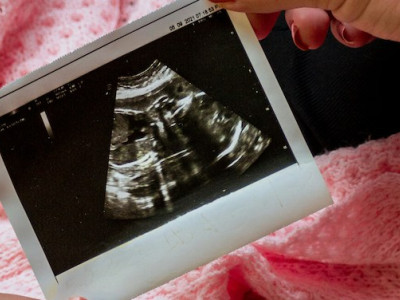“Bucknell student and faculty researchers are now adding to the mounting evidence that e-cigarette use, or vaping, may be hazardous to your health. With what began as an undergraduate research project, the group published a groundbreaking [SIC] study finding that carbon monoxide (CO) can be produced when e-cigarettes are used at higher power settings,” boasted the Bucknell PR department.
The press release begins by claiming “the facts are increasingly clear”, and links regular vaping to the recent spate of lung illnesses in the United States (despite the FDA and CDC now being clear it is linked to vitamin E acetate in illegal black-market THC products). At the outset, Bucknell University and facts seem to be very distantly related.
The “groundbreaking study” claims it has proved that “carbon monoxide can be produced when e-cigarettes are used at higher power settings.”
“The research on e-cigarettes was initiated three years ago by students of Bucknell and Professor Dabrina Dutcher, chemical engineering and chemistry. Together with Dutcher and Professor of Chemistry Karen Castle, Bucknell students Rileigh Casebolt, Jewel Cook, Ana Islas and Carnegie Mellon University student Alyssa Brown published their findings in the journal Tobacco Control in November.”
Dutcher is quoted as saying: “We're the first to show the relationship with carbon monoxide as a function of the power of the e-cigarette. The study proves that we really don't know what's coming out of e-cigarettes, but we now know there are potentially harmful chemical reactions."
The Assistant Professor of Chemistry and Chemical Engineering holds a number of higher qualifications:
- B.A., Chemistry, University of California at Davis
- M.E., Mechanical Engineering, University of Minnesota, Twin Cities
- M.P.H. (Master's of Public Health), University of Minnesota, Twin Cities
- Ph.D., Mechanical Engineering, University of Minnesota, Twin Cities
It’s difficult to believe Dutcher is unaware of what was taking place.
The students found “carbon monoxide concentrations of over 180 parts per million (PPM) at the device's maximum 200-watt power” and concluded that “vulnerable populations should be advised to either abstain from vaping or limit vaping to lower powers in order to minimize CO exposures.”
The coils used in this “study” are rated to a maximum of 60 and 70 watts. Applying 200 watts to these coils bears no relevance to real world vaping and the most non-scientific reader would be able to explain what is taking place.
Doctor Konstantinos Farsalinos commented: “This is unprecedented. Instead of examining what went wrong in your experiments (obviously nasty dry puffs which have no clinical relevance), you present this as groundbreaking research. You seem to ignore that ALL clinical studies measuring exhaled carbon monoxide in vapers have found levels identical to non-smokers. In fact, exhaled carbon monoxide is used as a very reliable marker to identify e-cigarette users who have completely quit smoking. You are not serving your students well.”
Related:
- “Carbon monoxide concentration in mainstream E-cigarette emissions measured with diode laser spectroscopy” by Dutcher et al. – [link]
Dave Cross
Journalist at POTVDave is a freelance writer; with articles on music, motorbikes, football, pop-science, vaping and tobacco harm reduction in Sounds, Melody Maker, UBG, AWoL, Bike, When Saturday Comes, Vape News Magazine, and syndicated across the Johnston Press group. He was published in an anthology of “Greatest Football Writing”, but still believes this was a mistake. Dave contributes sketches to comedy shows and used to co-host a radio sketch show. He’s worked with numerous vape companies to develop content for their websites.
Join the discussion
Expert Reaction to Pregnancy Study
Experts have reacted to the QML study of impacts of vaping in pregnancy and comparison with smoking
Study: Vapes Help Pregnant Quitters
A new study from Queen Mary University of London finds that vapes help pregnant smokers quit and pose no risk of poor pregnancy outcomes
IBVTA responds to UCL study
The Independent British Vape Trade Association has responded to University College London research and said the findings show the Government’s smoke-free ambition is stalling
Cochrane Review Echoes Swedish Success
The Cochrane Review echoes the Swedish approach, finding less harmful alternatives like vaping are superior to other quit methods, says Smoke Free Sweden












